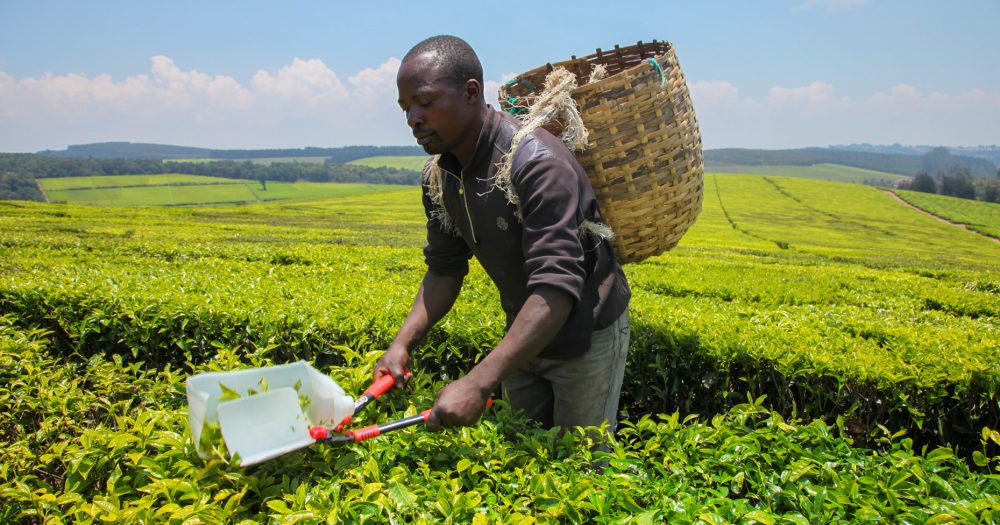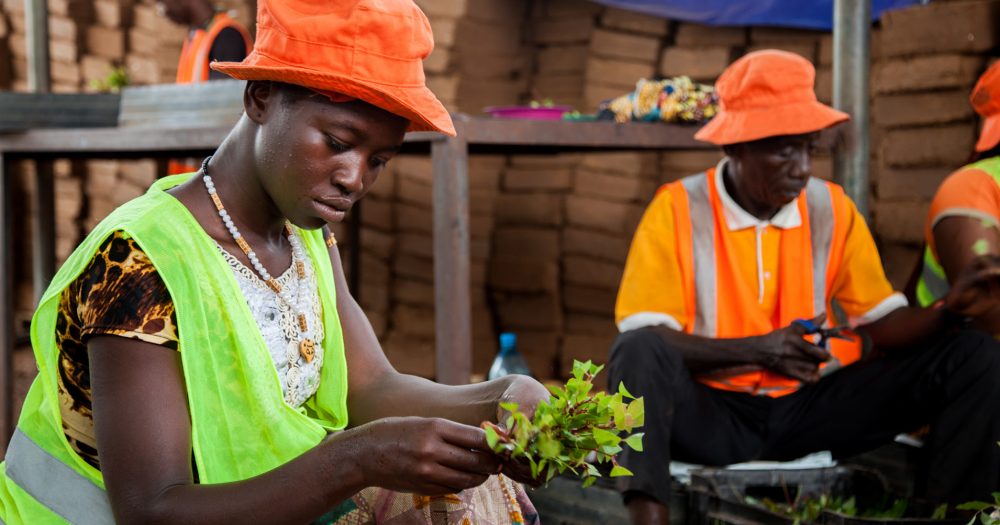This investment was made when British International Investment was named CDC Group.
We have now exited this investment. This is what we achieved.
Achieved impact
This information will appear shortly
Expected impact
Our investment in ETG is expected to support economic opportunity for 579,000 farmers across 21 countries through direct purchasing of agri commodities at the farm gate. Farmers report improved incomes, access to agri inputs and extension services compared to those that do not sell to ETG.
Impact information
Applies to investments made from 2019 onwards. The tabs in this section define what we expect to achieve through the investment, assessing the potential impact of the investment against six dimensions of impact. You can find more details on our methodology of assessing impact here.
Applies to investments made from 2019 onwards. The tabs in this section define what we expect to achieve through the investment, assessing the potential impact of the investment against six dimensions of impact. You can find more details on our methodology of assessing impact here.
What?
| Impact |
|---|
Economic opportunity for farmers (SDG 8 & 2.3) |
|
|
How?
| How? |
|---|
|
Direct: ETG purchases agri commodities from farmers at the farm gate indirectly linking them to regional and international markets. ETG sources a large number of agricultural commodities across the African continent; 80% of these are purchased at the farm gate with cash through a network of 450 all-year and seasonal procurement centres. Through these centres, ETG also offers inputs and extension services to the farmers. This enables two things: (1) farmers are able to sell surplus to ETG directly and are generally paid in cash; (2) through quality inputs and extension services yield will increase and (post-harvest) losses decrease. |
Who?
| Stakeholder | Geography | Characteristics |
|---|---|---|
| Farmers, as suppliers to, buyers of inputs from and recipients of extension services by ETG. |
Pan Africa and Asia (21 countries). A country can have 5 to 150 procurement centres. |
ETG purchases from small, medium and large farmers. In the three countries sampled, farmers selling directly to ETG typically have larger landholdings and a lower poverty likelihood. Over 85% of these farmers depend on agriculture as their primary source of income and are entrepreneurial using agricultural inputs and some mechanisation to improve yield. Majority of the farmers have started working with ETG recently and 83% sell nearly half of their produce to ETG with the balance sold to local markets and other middlemen. Farmers selling to the company are mostly male (70%) and young (60%<50 years old). |
How much?
| Scale | Depth/Duration |
|---|---|
|
In 2020, ETG procured from c.579k farmers in our geographies. For our $100 million investment, we estimate attributable reach at c.45k farmers annually. |
|
Contribution/additionality
| Contribution/additionality |
|---|
|
Grid score
| Grid Score
To help us direct our investments, we previously used a tool called the Development Impact Grid. It scored investments out of four, based on two factors: the difficulty of investing in a country and the propensity of the sector to generate employment. This tool was used for investments until the end of 2021. Since 2022 it has been replaced by the Impact Score. |
|---|
3.24 |
Risk
Unexpected Impact Risk
Evidence Risk
|
Reporting and Complaints Mechanism
The Reporting and Complaints Mechanism allows anyone outside BII to report alleged breaches of the business integrity or environmental and social provisions of BII’s Policy on Responsible Investing. This includes breaches made by BII, a BII investee, or a portfolio company of a fund in which BII has invested. The Reporting and Complaints Mechanism Rules are available here. Reports and complaints can be submitted by email to reportsandcomplaints@bii.co.uk or by mail. See more details on our Reporting and Complaints Mechanism here.
For any other general enquiries contact us at enquiries@bii.co.uk
-
Key facts
- Last updated
:
When the last quarterly update of the website database occurred.
- December 2024
- Project number
:
An identifier number shared by investments in the same project.
- D21
- Status
:
The current status of the investment (green flag for active and red flag for exited).
- Exited
- Region
:
The geographical region where the country is located. We currently invest in Africa, South Asia, South East Asia and the Caribbean. In 2023, BII’s investment mandate was extended allowing it to invest in regional funds linked to Ukraine, with the majority of activity expected to begin post-war. Investments outside these regions were made prior to 2012 under previous investment mandates.
- Australia, East Africa, East Asia, Global, South Asia, Southeast Asia, Southern Africa, USA, Western Asia, Western Europe
- Country
:
The countries where the investment delivers impact. Where impact is delivered in multiple countries, this is indicated.
- Australia, China, Global, India, Kenya, Malawi, Mozambique, South Africa, Tanzania, United Arab Emirates, United Kingdom, USA, Vietnam, Zambia, Zimbabwe
- Sector
:
We prioritise those sectors that facilitate development and need our capital the most. Our priority sectors contribute towards many of the Sustainable Development Goals. They range from investing in the power infrastructure that will provide people with better access to electricity, to investing in financial institutions that direct capital to the individuals and businesses that need it the most.
- Business and consumer services
- Sub sector
:
The sub-sector that the investment is made into; this provides a more granular level of detail than the ‘sector’ information
- Food Products
- Investment type :
- Debt
- Start date :
- November 2012
- End date :
- June 2016
- Amount :
- $32.5m
- Currency of investment :
- USD
- Domicile
:
The company or investment fund’s place of incorporation.
- Mauritius
We provide capital in the following ways: directly – through direct equity, direct debt, guarantees and other non-intermediated financial instruments; and indirectly – principally through investment funds.
For direct investments and fund investments, this is the date BII committed capital to the investments. This is typically the date on which legal agreements are signed by all parties.
For the portfolio companies of our fund investments, this is the date (either the month or the quarter) on which the fund committed capital to the portfolio company.
For direct equity investments, this is the date at which British International Investment exited the investment.
For debt investments, this is the date at which the final debt repayment was made.
For funds, this is the date at which the fund was terminated.
For underlying fund investments, this is the date at which the fund manager exited the investment.
The total amount committed, per financial instrument, per investment, on the date BII becomes subject to a binding legal obligation to provide funding or assume a contingent liability. This information is provided in US dollars.
For direct investments, this is the amount that BII has committed to the business or project. For fund investments, this is the amount BII has committed to the fund.
The currency in which the investment was made.
- Last updated
Related investments made by BII into this company:
| Investment name | Commitment | Region | Sector | Start date | Status |
|---|---|---|---|---|---|
| Investment 02 | $100m | Australia, East Africa, East Asia, Global, South Asia, Southeast Asia, Southern Africa, USA, Western Asia, Western Europe | Business and consumer services | March 2021 | Active |


